1905
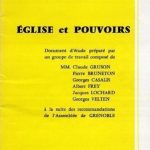
Law Separating Church and State
The law of December 9, 1905 concerning the separation of Church and State established and defined secularism in France. It guaranteed freedom of worship in the spirit of the Revolution of 1789, while giving it a legal framework and it organized the relationship between the secular Republic and the churches of the period. The French Protestant Federation was created, which brought together most of the Protestant churches and associations.
Article : Separation of Church and State
1910
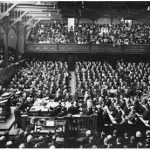
World Missionary Conference in Edinburgh
The different Protestant and Anglican missionary societies came together to avoid any competition in the work to evangelize the non-Christian world. Cradle of ecumenism, first predominantly Anglo-Saxon, then globalized, it led to the creation of the World Council of Churches 1948.
Article : La conférence missionnaire mondiale d’Édimbourg (1910)
1911

Creation of the EEUDF (Unionist Guides and Scouts of France)
This Protestant youth education movement focused on obedience was founded in 1909-1911, as a version of the scouting movement initiated by Lord Baden-Powell in 1907 in Great Britain. The movement now has around 5,600 members in France and is part of the French Scouting and International Scouting movements. Its success and its influence vary with societal changes.
Article : Scouting and women
1934
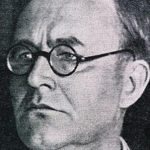
The Barmen Declaration
On May 31, the ministers of the German evangelical church met as a clandestine synod in the suburbs of Wuppertal (Rhineland-Palatinate), in Barmen. They declared, in a confession of faith, drafted in part by Karl Barth: “…We reject the false doctrine, as though the church could and would have to acknowledge as a source of its proclamation, apart from and besides this one Word of God, still other events and powers, figures and truths, as God’s revelation…” They thus showed their opposition to the German Evangelical Church of Deutschen Christen imposed by Hitler and most particularly its Aryan paragraph. This was the beginning of the Confessing Church
Article : Karl Barth (1886-1968)
1942
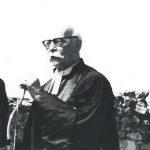
Boegner’s intervention in favor of the Jews
On March 26, minister Marc Boegner, in the name of the National Council of the Reformed Church in France for which he served as president, wrote a letter to the Grand Rabbi of France, Isaïe Schwartz, to express to him his solidarity following new anti-Semitic laws promulgated by the Vichy government: “Our Church, which has known suffering and persecution in the past, has an ardent sympathy for your communities which have seen their freedom of worship compromised in certain places and the members of which have been so abruptly struck by misfortune.”
1948
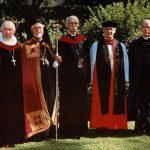
Creation of the World Council of Churches
The founding assembly of the World Council of Churches (WCC) met in Amsterdam. This was the result of years of work begun during the Missionary Conference of Edinburgh in 1910 and carried out since within the Churches born of the Reform in two directions, Faith and Constitution, on the one hand, and practical Christianity, on the other. The Council federated these groups and welcomed the representatives of the Orthodox Churches. However the Catholic Church did not participate. The Rev. Marc Boegner and Rev. Wilhelm Wisser’t Hooft were President and Secretary General respectively. It was decided to establish the seat of the WCC in Geneva.
Article : Protestantism around the world
1952
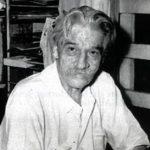
Albert Schweitzer, Nobel Peace Prize
Albert Schweitzer (1875-1965), born in Strasbourg, was a theologian (professor at the theology school of Strasbourg) musician (famous organist), philosopher (a specialist in Kant and European religions), and also a physician who established and managed Lambaréné Hospital (Gabon). During his Nobel Prize acceptance speech, he took a stand against nuclear armament.
Article : Albert Schweitzer (1875-1965)
1973

The Concord of Leuenberg
The signing in 1973 of the Concord of Leuenberg, a small Swiss city, was the result of discussions begun in 1960 between ministers and heads of Lutheran and Reformed Churches in Europe. It was recognized that the doctrinal differences of the 16th century between Lutheranism and Calvinism concerning Last Supper were obsolete and were no longer a valid reason for dividing the two churches. The Leuenberg Concord made the creation of the United Protestant Church of France possible in 2013.
Article : French Reformed Church
1975
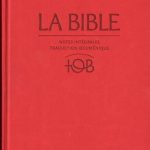
Publication of the TOB: the French Ecumenical Translation of the Bible
The French Ecumenical Translation of the Bible (TOB) was completed. The work conducted by Catholic, Reformed and Lutheran teams, with occasional help from the orthodox churches benefited from remarkable circumstances: the advances in biblical exegesis, the Second Vatican Council, the active assistance of the United Bible Societies and the Editions du Cerf publishing house (managed by the Dominicans).
Article : What is the Bible ?
1985

Creation of the Council of Christian Churches in France
The Council of Christian Churches in France (CECEF) is made up of delegations from Catholic, Protestant, Orthodox and Armenian Apostolic Churches. Its mission is to facilitate reflection and potentially common initiatives in three fields: Christian presence in society, service and testimony. The CECEF is co-chaired by the presidents of the first three delegations.
